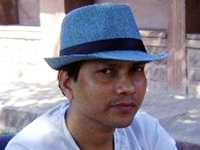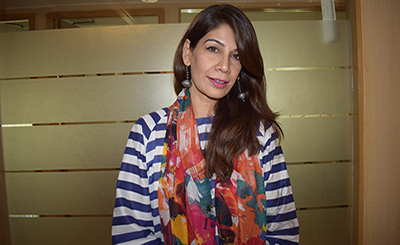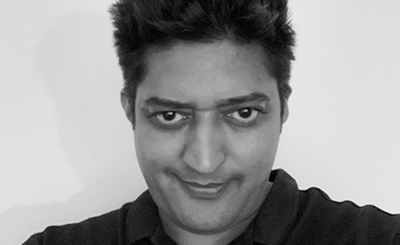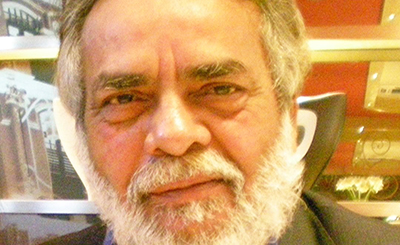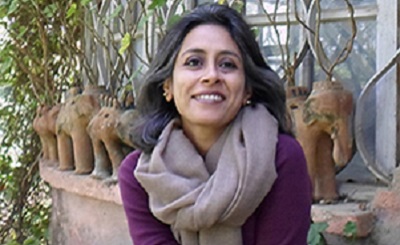
Nidhie Sharma. Photo courtesy of the author
The author on her second book, Invictus, which recounts an incident from her childhood when she, along with five others, was stranded in a jungle in Tawang at the Indo-China border
Mumbai-based filmmaker, screenwriter and author Nidhie Sharma is an adrenaline junkie, ever excited by the prospect of action and adventure. It is a trait that traces back to her childhood, and finds its way to her writing. In Invictus (Pan Macmillan), she recounts an inspiring and adventurous episode from the past when she, along with five others, was stranded in a jungle in Tawang at the Indo-China border, struggling to find a way out before dusk settled. After having graduated with honours in English Literature, Sharma studied filmmaking and screenwriting at New York University and New York Film Academy. She was raised in an Army family and has travelled extensively around the world.
Excerpts from an interview:
The Jungle That Made Me — the subtitle of your book, Invictus, which tells the inspiring story of survival, is instructional. In what ways has your incredible adventure in the jungle made you?
‘Sometimes the jungle that is designed to kill you decides to make you instead’ is how the first chapter of my book ends.
Invictus is an ode to the magnificent Jungles of Tawang (Arunachal Pradesh). I believe there is a lot to learn from nature and the very act of survival in the wild. Personally, I have also learnt how powerful one’s choices can be and the importance of never giving up. On the whole, resilience and humility are invaluable lessons that would hold anyone in good stead.
Your account has rich descriptions of the landscape. How did you work on those details of the terrain that makes your account vivid?
I’ve been enchanted by the mystical landscape of Tawang and have attempted to describe it as visually as possible and I’m really happy that the terrain and the jungle have come alive in the book.
You tell the story in large part through conversations between the six friends. How did you go about recalling and constructing the conversations between them?
My childhood habit of maintaining journals came in handy while penning this account. It was my endeavour to share even the minutest of details in the book, including our conversations, my inner monologues, introspections and the events of the day itself, so that readers would feel as though they were part of this adventure along with the six of us.
You have written about the light moments during the travail. Were there moments of fear and despair, too?
In the book, I have described how that day felt like a freefall from the top of a coniferous tree, that we kept hitting pine needle after needle on our way down but never hit the ground and as the oldest, I took the brunt of this excruciating endlessness.
Being lost in one of the most inhospitable terrains near our borders with China, without food, water or any means to communicate did evoke a whole host of emotions including despair but I was tunnel focussed on getting us all out after that first terrifying brush with the elements.
In the wilderness, fear can kill because it impedes a person’s ability to think and act rationally but thankfully fear was quickly displaced by the need to save and survive.
In Invictus, I’ve shared the entire gamut of emotions which I had experienced that day. In the book, I’ve also written about how we sang the iconic ‘Badluram’ song to stay sane, to survive the punishing events of the day.
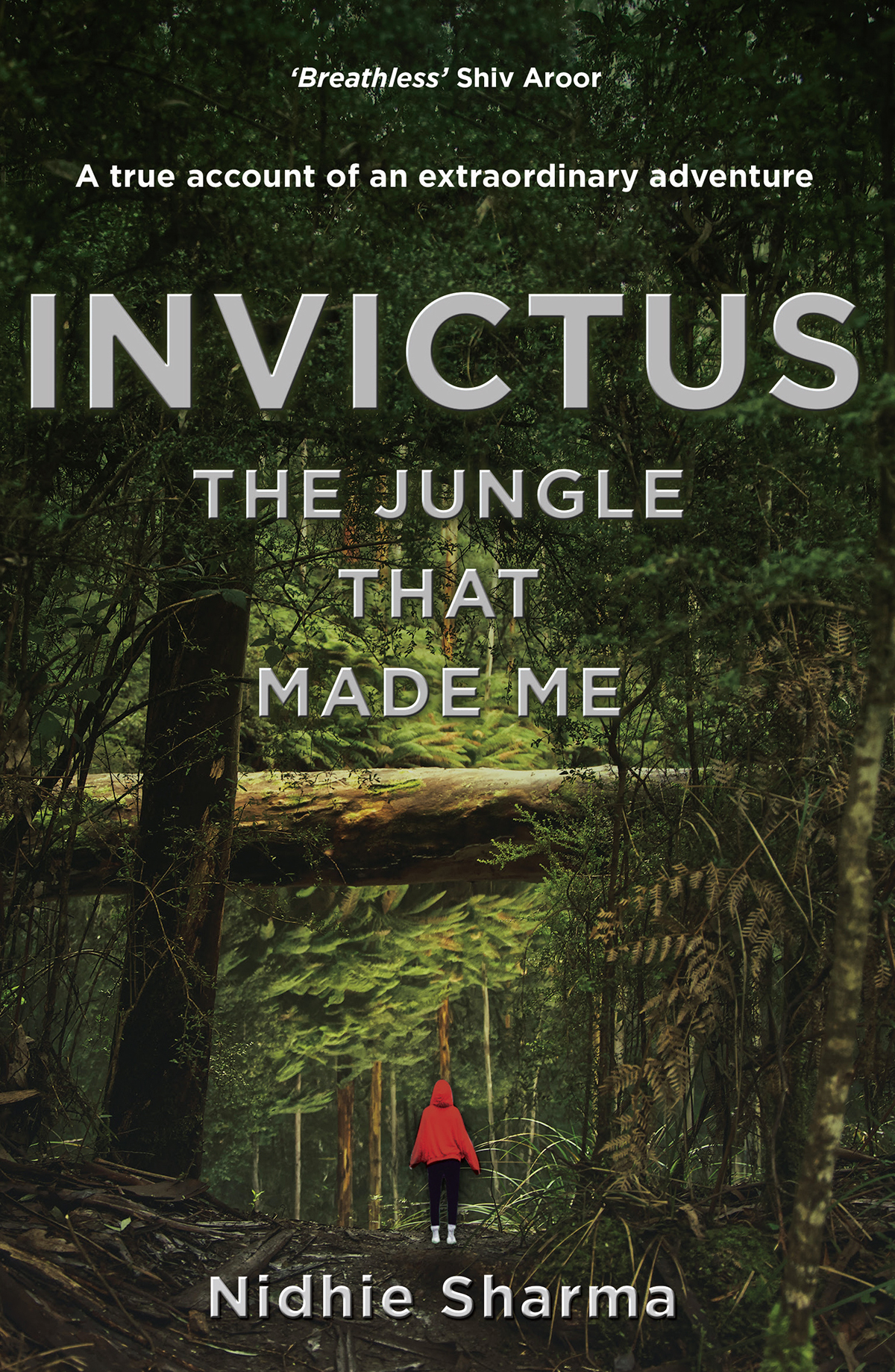
Pan Macmillan India; pp. 224, Rs 399
You have written how your planning and related training kept you in good stead in the jungle. Could you elaborate a bit for the readers?
The jungle turned everything on its head and it also took away our means to survive. The one thing that saved us from tragedy that day was an understanding of the terrain and weather, having previously spent two summers there. Also as an Army kid, one is naturally programmed to be resilient even in the face of a daunting challenge, to keep one’s head together and stay calm.
Your directorial and literary debuts, Mask in the Mirror and Dancing with Demons, are about people battling their inner demons. How did you arrive at these stories? Do you think this battle is central to our quest to move on with our lives, leaving the dark entrails of the past behind?
I am drawn to inner battles more because they are harder to fight. As a storyteller, I have always been fascinated by the complex inner life of characters and how battling with demons and vanquishing them or making peace with them is the way to move forward in life.
Dancing with Demons, is a boxing drama novel — believed to be India’s first — that revolves around love loss and resurrection. Its protagonists, Karan Pratap Singh and Sonia Kapoor, both harbour a secret that they are tormented, and can’t come to terms with. It’s only when they defeat their inner demons that they become what they had been destined to. Were you interested in exploring how it’s difficult to escape one’s past and that redemption is possible only through forgiveness?
Dancing with Demons, at its heart, is about hope; it is about playing the hand you’re dealt the best you can. It is about passions that propel us forward and demons that hold us back. In this novel, I was interested in exploring how two complex and damaged individuals battle their demons and find light and their respective paths at the end of the dark tunnel.
You have written on the International Emmy Award Nominated Cricket thriller web series Inside Edge. How was the process of writing for a series?
The upcoming season of Inside Edge’ is different from the previous ones and the writing process involved a lot of research and related character work. While web series are a collaborative effort between writers, the makers sometimes leverage the unique storytelling strength of a writer and to that end I am fortunate that they recognised my strength with characters. Overall, the process was very enjoyable.
What fascinates you about the sports and action genres? In terms of storytelling, which do you find easier?
For sports and action genres, one needs a real understanding of these universes, an eye for detail, a love for precision and the vision for scale. Both these genres are extremely specialised and visual and my fascination for them can be traced back to my own interest in sports and my background. I’ve extensively worked in both and enjoy them equally.
You assisted Sudhir Mishra on Yeh Saali Zindagi and Daas Dev. Mishra is a director with a distinct sensibility. What have been your greatest takeaways from the days of working with him?
Sudhir Mishra is a master storyteller and his understanding of life and the contradictions and duality that are present within people is matchless. I also think he is able to extract the best performances from his actors which is no mean feat.
In what ways has your peripatetic life as an Army kid shaped you and informed your outlook towards life and the choices you have made?
When your wings are your roots, you inadvertently become adaptable, dynamic and a learner for life. Growing up in the Armed Forces also helps develop a well-rounded personality. It enables you to take on whatever life throws at you.
Since you straddle both the literary and the audio-visual worlds, who are some of your most abiding influences in literature and cinema?
In both mediums, I’ve been drawn to pioneers and masters alike. In literature, I have voraciously read Samuel Beckett, William Shakespeare, T.S. Elliot, John Keats, William Wordsworth, Rohinton Mistry and, more recently, Marlon James. In cinema, my favourite directors are Stanley Kubrick, Martin Scorsese, Wong Kar-wai, Quentin Tarantino, Orson Welles, Guillermo del Toro and Alfonso Cuaron.
More from The Byword
Comments
*Comments will be moderated



